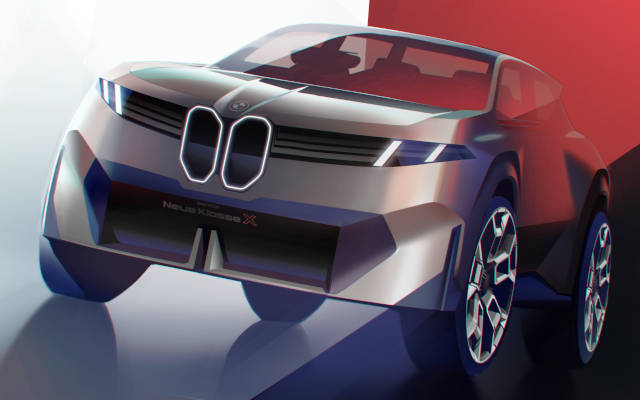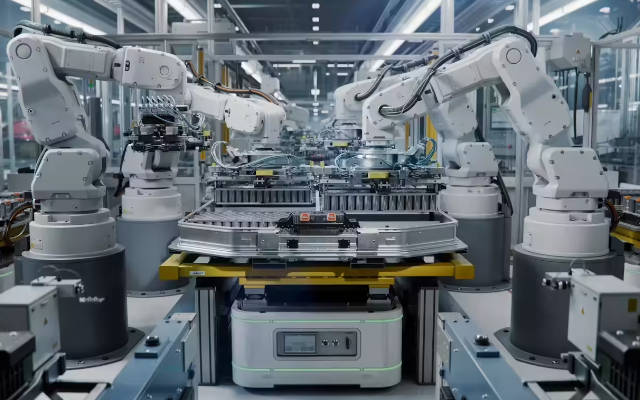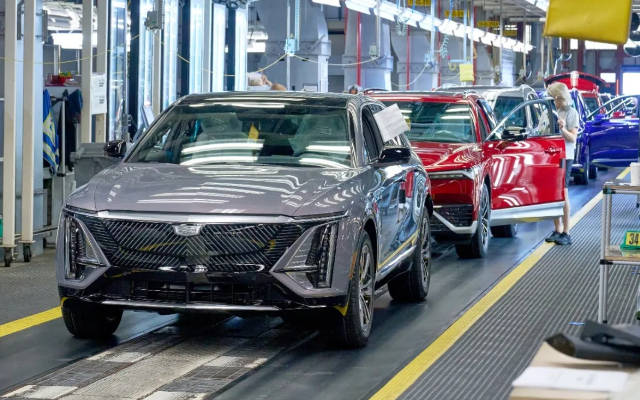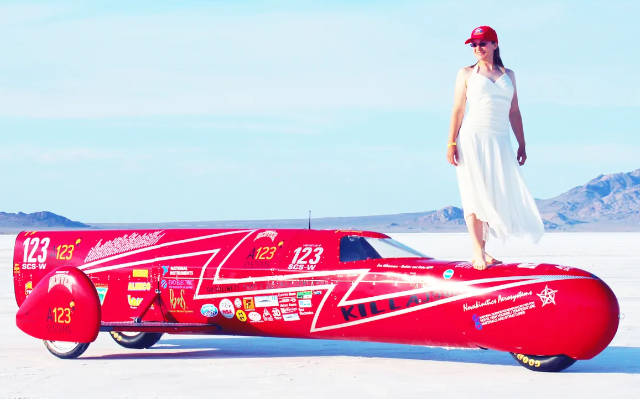 EDITOR'S PICK
EDITOR'S PICK
What If BMW Stopped Making Electric Cars? The Harsh Reality Behind That Idea
16 Oct 2025 | Synopsis
 If BMW quit making EVs, it would face regulatory bans, lose tech leadership, alienate younger buyers, and shrink its market share. EVs drive growth, innovation, and brand relevance. Abandoning them would hurt perception, supply chains, and investor confidence. BMW's legacy is built on progress - ditching electrification would erase that identity
If BMW quit making EVs, it would face regulatory bans, lose tech leadership, alienate younger buyers, and shrink its market share. EVs drive growth, innovation, and brand relevance. Abandoning them would hurt perception, supply chains, and investor confidence. BMW's legacy is built on progress - ditching electrification would erase that identityPlummeting Battery Prices Will Push BEVs Below Parity Soon
16 Oct 2025 | Synopsis
 Battery costs are falling so fast that battery electric vehicles (BEVs) could reach price parity with internal combustion vehicles within 2-4 years in Europe, and in China some models have already done so. The author expects battery pack costs to drop ~70% over the next five years, which would allow automakers to slash BEV retail prices while maintaining margins. That shift may force more aggressive pricing competition and encourage faster EV adoption.
Battery costs are falling so fast that battery electric vehicles (BEVs) could reach price parity with internal combustion vehicles within 2-4 years in Europe, and in China some models have already done so. The author expects battery pack costs to drop ~70% over the next five years, which would allow automakers to slash BEV retail prices while maintaining margins. That shift may force more aggressive pricing competition and encourage faster EV adoption.GM Bets Big On Electric Cars Even As Market Slows
15 Oct 2025 | Synopsis
 Despite a slowing EV market, GM remains committed to its electric strategy, citing strong sales growth and expanded market share currently at 17.2% YTD. It offers a wide EV lineup of some 30 models, but has paused some production and laid off workers amid shifting demand. While GM scrapped its all-EV pledge by 2035 and backed regulatory rollbacks, it is reintroducing the affordable Chevy Bolt and aims to balance EV accessibility with profitability.
Despite a slowing EV market, GM remains committed to its electric strategy, citing strong sales growth and expanded market share currently at 17.2% YTD. It offers a wide EV lineup of some 30 models, but has paused some production and laid off workers amid shifting demand. While GM scrapped its all-EV pledge by 2035 and backed regulatory rollbacks, it is reintroducing the affordable Chevy Bolt and aims to balance EV accessibility with profitability.Renewable Energy Outpaces Coal For Electricity Generation In Historic First, Report Says
15 Oct 2025 | Synopsis
 In the first half of 2025, renewable energy generated more global electricity than coal for the first time - 30% vs. 27%, per Ember. Solar and wind led the surge, especially in China and India. UN Secretary-General Antonio Guterres called it a "historic opportunity," urging nations to accelerate the transition from fossil fuels and embrace a clean energy future powered by investment and equity.
In the first half of 2025, renewable energy generated more global electricity than coal for the first time - 30% vs. 27%, per Ember. Solar and wind led the surge, especially in China and India. UN Secretary-General Antonio Guterres called it a "historic opportunity," urging nations to accelerate the transition from fossil fuels and embrace a clean energy future powered by investment and equity.Thought The Yangwang Was Fast? These Are The 32 Fastest EVs On The Planet
15 Oct 2025 | Synopsis
 Top Gear ranks the 32 fastest electric vehicles, spanning cars, bikes, planes, and trains. Highlights include the Rimac Nevera R (268mph), Rolls-Royce's Spirit of Innovation plane (387mph), and France's TGV train (357mph). The fastest is BYD's Yangwang U9 Xtreme at 308.4mph for production cars, while Japan's L0 maglev train tops all at 375mph. The list showcases global EV speed innovation across all transport modes. Three are friends of EV World.
Top Gear ranks the 32 fastest electric vehicles, spanning cars, bikes, planes, and trains. Highlights include the Rimac Nevera R (268mph), Rolls-Royce's Spirit of Innovation plane (387mph), and France's TGV train (357mph). The fastest is BYD's Yangwang U9 Xtreme at 308.4mph for production cars, while Japan's L0 maglev train tops all at 375mph. The list showcases global EV speed innovation across all transport modes. Three are friends of EV World.
 EVWorld Exclusive
EVWorld Exclusive
Infinite Machine: Design-Driven Urban EVs with European Aspirations
27 Oct 2025 |  Infinite Machine, a Brooklyn-based EV startup, unveiled its P1 scooter and Olto moped at EICMA 2025, targeting European urban riders. Backed by Andreessen Horowitz and Nico Rosberg, the company blends design and performance but has yet to confirm production or deliveries. With prototypes and press buzz, it's not vaporware - but remains unproven. European rollout begins in 2026 via select dealers.
Infinite Machine, a Brooklyn-based EV startup, unveiled its P1 scooter and Olto moped at EICMA 2025, targeting European urban riders. Backed by Andreessen Horowitz and Nico Rosberg, the company blends design and performance but has yet to confirm production or deliveries. With prototypes and press buzz, it's not vaporware - but remains unproven. European rollout begins in 2026 via select dealers.
The Uncomfortable Truth Behind Our Push For Clean Tech
27 Oct 2025 |  China's rare earth export controls are forcing the West to reshore toxic industries once outsourced. Mining and refining rare earths - essential for EVs and defense - carry major environmental risks. Projects in Nebraska and Wyoming face local opposition over health and pollution concerns. The West must now balance its need for green tech materials with the challenge of minimizing environmental and public health impacts at home. Clean energy, it turns out, has a dirty supply chain.
China's rare earth export controls are forcing the West to reshore toxic industries once outsourced. Mining and refining rare earths - essential for EVs and defense - carry major environmental risks. Projects in Nebraska and Wyoming face local opposition over health and pollution concerns. The West must now balance its need for green tech materials with the challenge of minimizing environmental and public health impacts at home. Clean energy, it turns out, has a dirty supply chain.
Toyota Century: Electrified Prestige and Philosophical Pivot
27 Oct 2025 |  Toyota's Century project marks a bold leap into ultra-luxury EV territory, challenging Rolls-Royce, Bentley, and Cadillac with Japanese craftsmanship and electrified ambition. Once a domestic icon, the Century now signals Toyota's intent to globalize prestige mobility - quietly, deliberately, and with high-voltage precision.
Toyota's Century project marks a bold leap into ultra-luxury EV territory, challenging Rolls-Royce, Bentley, and Cadillac with Japanese craftsmanship and electrified ambition. Once a domestic icon, the Century now signals Toyota's intent to globalize prestige mobility - quietly, deliberately, and with high-voltage precision.
Unlocking Heat's Hidden Potential: How a Nanoscale Discovery Could Transform Everyday Tech
24 Oct 2025 |  A recent nanoscale physics breakthrough reveals heat can transfer across tiny gaps far more efficiently than expected - up to 100 times greater than classical predictions. This could revolutionize cooling and energy systems in electronics, EVs, and smart appliances. While engineering challenges remain, early applications may emerge within 3-5 years, with broader consumer adoption possible in the next decade. The future of heat management may be silent, solid-state, and radically efficient.
A recent nanoscale physics breakthrough reveals heat can transfer across tiny gaps far more efficiently than expected - up to 100 times greater than classical predictions. This could revolutionize cooling and energy systems in electronics, EVs, and smart appliances. While engineering challenges remain, early applications may emerge within 3-5 years, with broader consumer adoption possible in the next decade. The future of heat management may be silent, solid-state, and radically efficient.
Turning the Energy Crunch into a Smart Grid Revolution
24 Oct 2025 |  America's energy crunch is not about supply - it's about coordination. Virtual power plants and vehicle-to-grid systems offer a scalable, software-driven solution to rising demand from AI, EVs, and climate volatility. By turning homes, vehicles, and businesses into active grid assets, and aligning policy with technology, the U.S. can build a smarter, more resilient energy future without building more power plants. The tools exist - now it's time to connect them.
America's energy crunch is not about supply - it's about coordination. Virtual power plants and vehicle-to-grid systems offer a scalable, software-driven solution to rising demand from AI, EVs, and climate volatility. By turning homes, vehicles, and businesses into active grid assets, and aligning policy with technology, the U.S. can build a smarter, more resilient energy future without building more power plants. The tools exist - now it's time to connect them.
 27 Oct 2025 22:57:53 UTC |
RECENT PODCASTS
What Battery Chemistry Wins - Ontario Nuclear Investment - Battery Storage Boom
SEARCH RSSTREAM
 65 New Postings In Past 24 Hours
65 New Postings In Past 24 Hours
Category:mobility
Region:NoAmerica
Date:27 Oct 2025
Category:mobility
Region:NoAmerica
Date:27 Oct 2025
Category:finance
Region:NoAmerica
Date:27 Oct 2025
Category:finance
Region:Global
Date:27 Oct 2025
Category:finance
Region:NoAmerica
Date:27 Oct 2025
Category:recall
Region:NoAmerica
Date:27 Oct 2025
Category:energy
Region:NoAmerica
Date:27 Oct 2025
Category:finance
Region:NoAmerica
Date:27 Oct 2025
Category:review
Region:AustralPacific
Date:27 Oct 2025
Category:mobility
Region:AsiaPacific
Date:27 Oct 2025
Category:mobility
Region:SoAmerica
Date:27 Oct 2025
Category:energy
Region:NoAmerica
Date:27 Oct 2025
Category:mobility
Region:NoAmerica
Date:27 Oct 2025
Category:autonomy
Region:NoAmerica
Date:27 Oct 2025
Category:mobility
Region:AsiaPacific
Date:27 Oct 2025
Category:finance
Region:NoAmerica
Date:27 Oct 2025
Category:energy
Region:NoAmerica
Date:27 Oct 2025
Category:energy
Region:NoAmerica
Date:27 Oct 2025
Category:finance
Region:Global
Date:27 Oct 2025
Category:energy
Region:NoAmerica
Date:27 Oct 2025